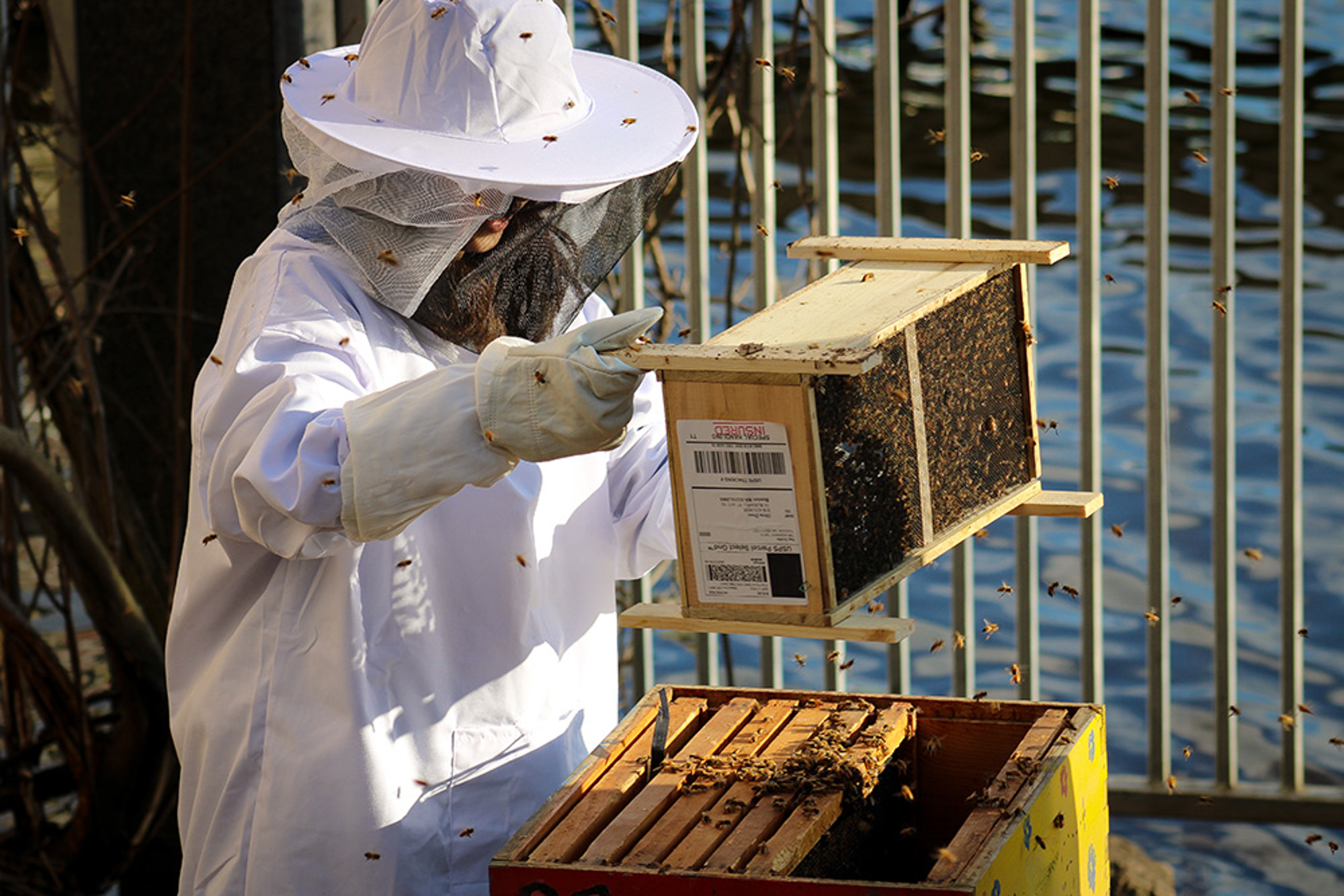The Boston University Beekeeping Club is facing challenges securing approval for a new hive location on campus after a majority of their bees died from harsh weather conditions.
Jackson Watts, a junior in the College of Arts and Science and president of BU Beekeeping Club, said club members sustain the hives by adding insulation and sugar water to substitute nectar. However, most of the club’s bees died when members “improperly winterized the hive” in Fall 2022.

“They’ve taken some sort of hit,” Watts said. “[The hive] was significantly weakened, and a lot of them did die.”
Watts said the club chose not move the hive back to the original location on the Charles River because of mite infestations and highway noise that is harmful to bees.
“We could put these back in this hive,” Watts said. “But if we did that, it would basically just be setting them up for failure because there are mites and it also is in a terrible location for bees and it would stress them out and make them suffer.”
Watts said the club asked the Faculty of Computing and Data Sciences about placing the hives on the building’s rooftop, but they were denied because of safety concerns.
“The main problem is fear of bees, and people are allergic to bees, and they don’t want bees on campus because of that,” Watts said.
In an email, BU Spokesperson Colin Riley wrote that he was unaware of any regulations prohibiting the BU Beekeeping Club from moving their hive but believes bees can be dangerous in densely populated areas.
“I think bee hives in urban areas occasionally have to be moved,” Riley wrote. “Some people are allergic to bee stings to the point of being life-threatening.”
Learning about insects is crucial because “we are losing species faster than we can even classify and identify them,” Lynette R. Strickland, an assistant professor of biology, wrote in an email.
“Campus clubs like the BU bug club and the bee keepers club provide an avenue for students to foster their interests in insect biology, serve their communities, and hang out with other people who have the same interests,” Strickland wrote.
Luce McCabe, a junior in CAS and co-president of BU Bug Club, said bees are “often overlooked” in the New England area and appreciates that BU Beekeeping Club protects them.
“Bees need a good home base to work out of, and that is where so much important social and behavioral communication happens for the bees,” McCabe said.
McCabe said it is necessary to preserve a hive where the queen bee lives and reproduces.
“It’s important so bees can proliferate and maintain ergonomics at the colony level,” McCabe said.
Stef Linden, a sophomore in CAS and trip coordinator of BU Bug Club, said maintaining local bee communities is crucial to preventing their extinction.
“When people talk about saving the bees, I think we should focus a lot on the bees that we have here already rather than the ones that we’ve brought over from other continents,” Linden said.
Linden said establishing a habitat that naturally attracts bees will allow the species to flourish.
“One thing about bees is that they can fly away,” Linden said. “They’re not bound, in the way that other animals are, and so it’s important to keep them in an environment that they appreciate.”
Watts said BU Beekeeping Club currently does not have a hive, but it is negotiating with the Esplanade to potentially add an off-campus hive.
“My hopes and vision are both that the hive will return this summer in a location where bees are happy and that they’re healthy, and that the beekeeping clubs will be able to have regularly scheduled meetings and have an active culture on campus by next year,” Watts said.

























































































































